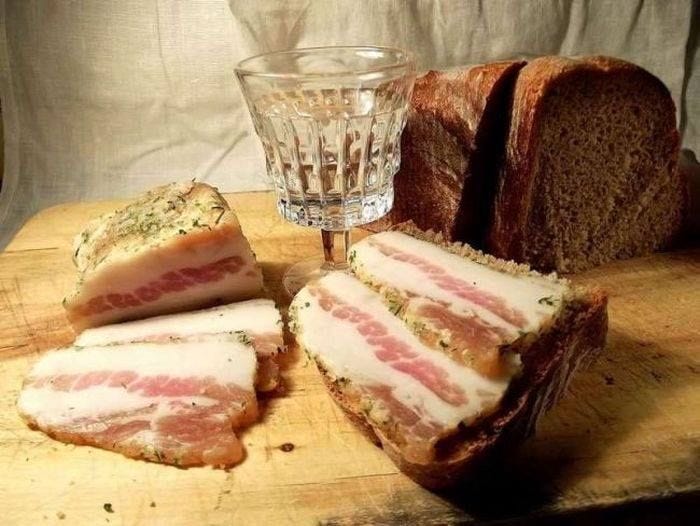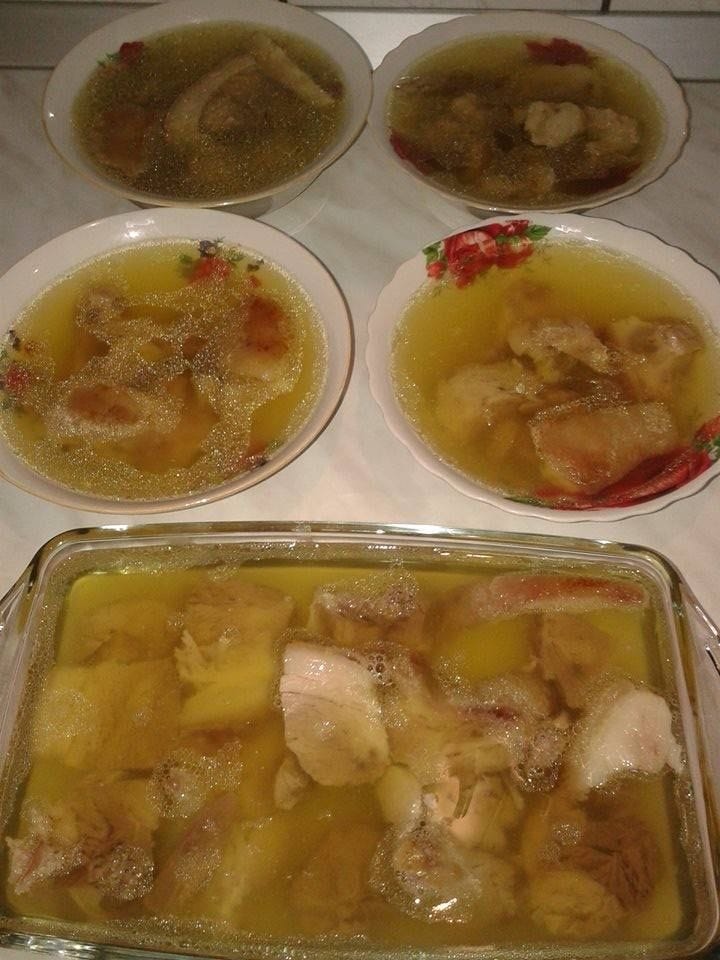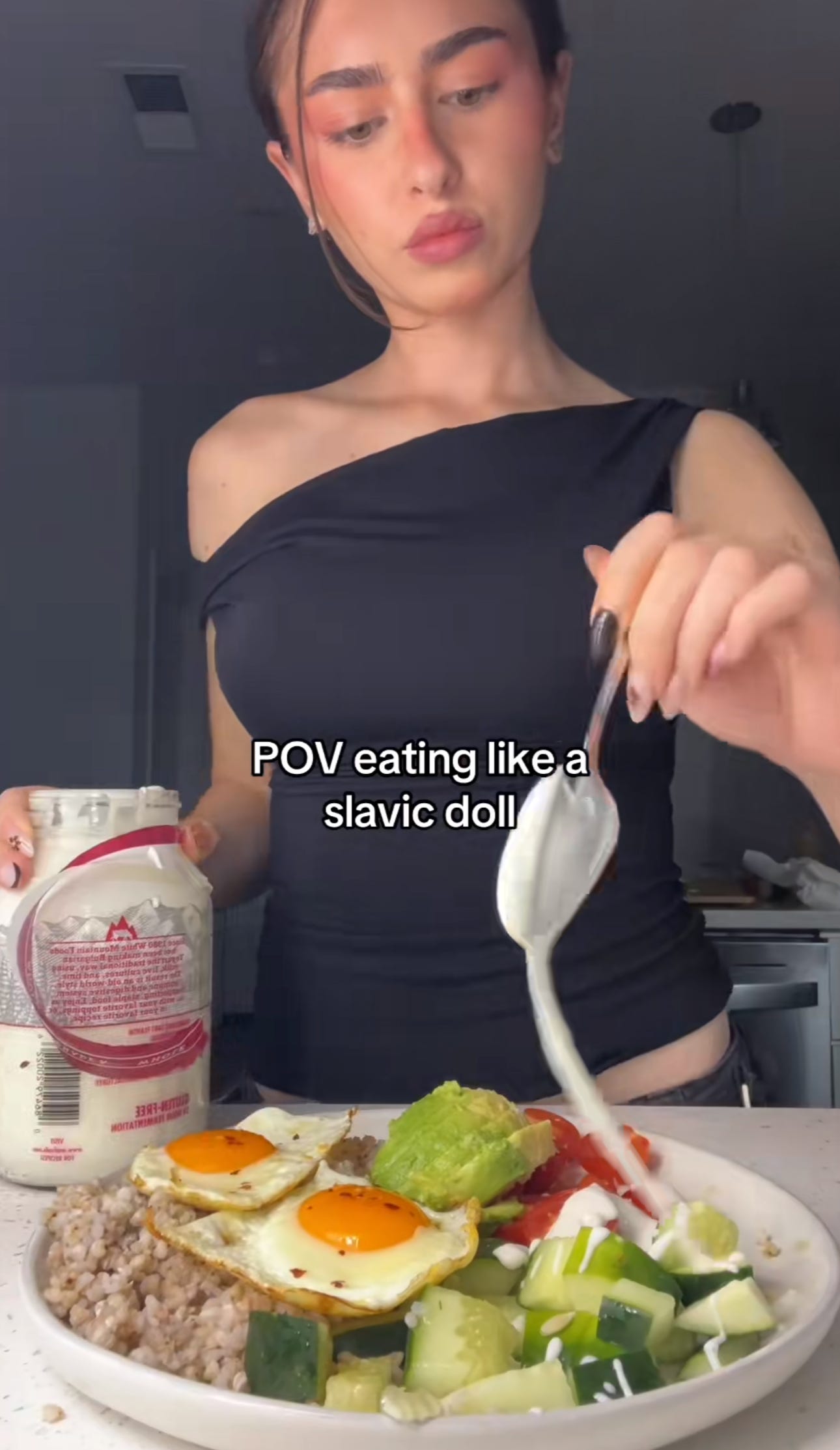Content Warning: This material contains mentions and descriptions of food and animal slaughter.
A slice of bread was never eaten plain in my family. White, brown, black—none would remain virgin for long under my red, red roof.
In the mornings, just before pre-school, my mother used to slap a knife-full of liver pâté on a piece of black, seeded rye bread, and feed it to me ahead of the day. I wasn’t like other girls. I was eating liver for breakfast, instead of Fruit Loops.
Dark, fat, heavy—I loved its coarseness, despite the texture and taste frightening me now when I think of it as an adult. My father usually sat at the breakfast bar across from me, scarfing down triple the amount of bread slices.
Having a bar-height counter in post-soviet Latvia meant you were rich to outsiders. We weren’t rich; we bought liver pâté in chub film instead of jars. We were in debt.
But we ate well. No one in my family was underweight. Everyone in my family loved bread. They loved it so much that every time I left behind the blackened crust of rye, which was far too bitter for my young palette, they’d all congregate and chew me out like a pack of wolves. They loved bread so much that they brewed it into moonshine, and drank it without ceremony. Then chased it down with another chunk of bread and a slab of smoked, salt-cured pork fat, one serving of which amounted to 900 calories.
My grandfather made his own illicit moonshine samogon in our back yard, away from prying eyes, stewing 4-5 barrels at a time. Each barrel exhaled its own shade of vile. If one smelled light and fruity, its neighbour smelled irreverently acidic. He made his own pork salo too, raising swine then mercilessly killing them for the fatback. I never did eat salo, but I did, at one point, observe its making from the very moment the pig took its last breath. I even held its curled tail once my dad and grandad stripped the rind from its shrieking head and flowering back.
After the lard was obtained for the salo, my grandmother usually took the rest of the cadaver to make several dishes out of. She boiled the head, along with its other extremities, to make a collagen-rich broth called holodets. She’d add carrots, peas, shredded chicken, onions and herbs to the broth, then cool it until it congealed into an aspic. When I think back, I feel disgust. Towards the taste of the meat jelly, and the nonchalance of my family’s cruelty.
But disgust meant nothing when the ghosts of hunger, cold, and loss were still tarrying about the village. I lived in the city with my parents, but every time I came out to the countryside to see my family, it felt like everyone was gearing up for war again.
The cellar was chock-full of preserves for the winter. Fruit and berries, tomatoes, cabbage, pickled and brined gherkins. Wine casks lined the furthest wall of the underground. You couldn’t see the floor of the vault when peeking into it from the top. Above the cellar, in the kitchen, smoked hake cod hung from the rack, mackerel and whitebait lay on the chopping board, already deboned.
During the holidays, the table bowed under the weight of the cooked goose, which was still kicking in the morning, hissing and chasing after me in the grass. I thought: that’s what you get. Stuffed with rice and apples, its crispy skin perfumed the room in golden spurts. Stodgy mayonnaise salads fringed the table—crab salad, meat salad, olivier, and vinigret. The dead herring under a fur coat was warmer than the living dog outside, who sat chained up, nosing the feast he’d never get to taste. Salyan red caviar on white bread, sprats on fried black bread; kvas in one hand, vodka in the other.
For hours, they ate, and ate. Then ate, drank, and ate some more. Loudly, wildly, and ungracefully. No concern for portions or presentation; for thinness or for calories. No one expected to be seen or admired, and so they ate to live, and lived to eat. They tore through flesh and bone, with forks, knives, mouths and hands. They ate anything and everything, no matter how it looked.
They were sure the food would disappear by tomorrow, and the soldiers would come marching into town. Thus, all night, they fattened up the humps on their backs for the unprecedented times to come.
I suddenly understood how my predecessors survived what they survived; I understood what I was borne of. It definitely wasn’t cigarettes, buckwheat or avocado.








"slavic doll diet" and it's cigarettes and avocados, two of the most expensive things in the supermarket in eastern europe
I love hearing about people's upbringings. It's so personal and beautiful in its simplicity. Thanks for sharing an actual Slavic experience with us.